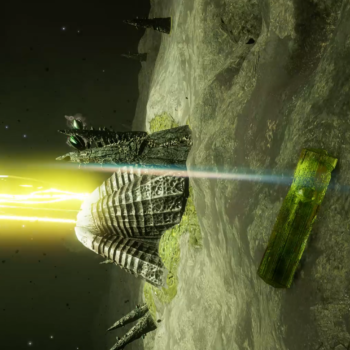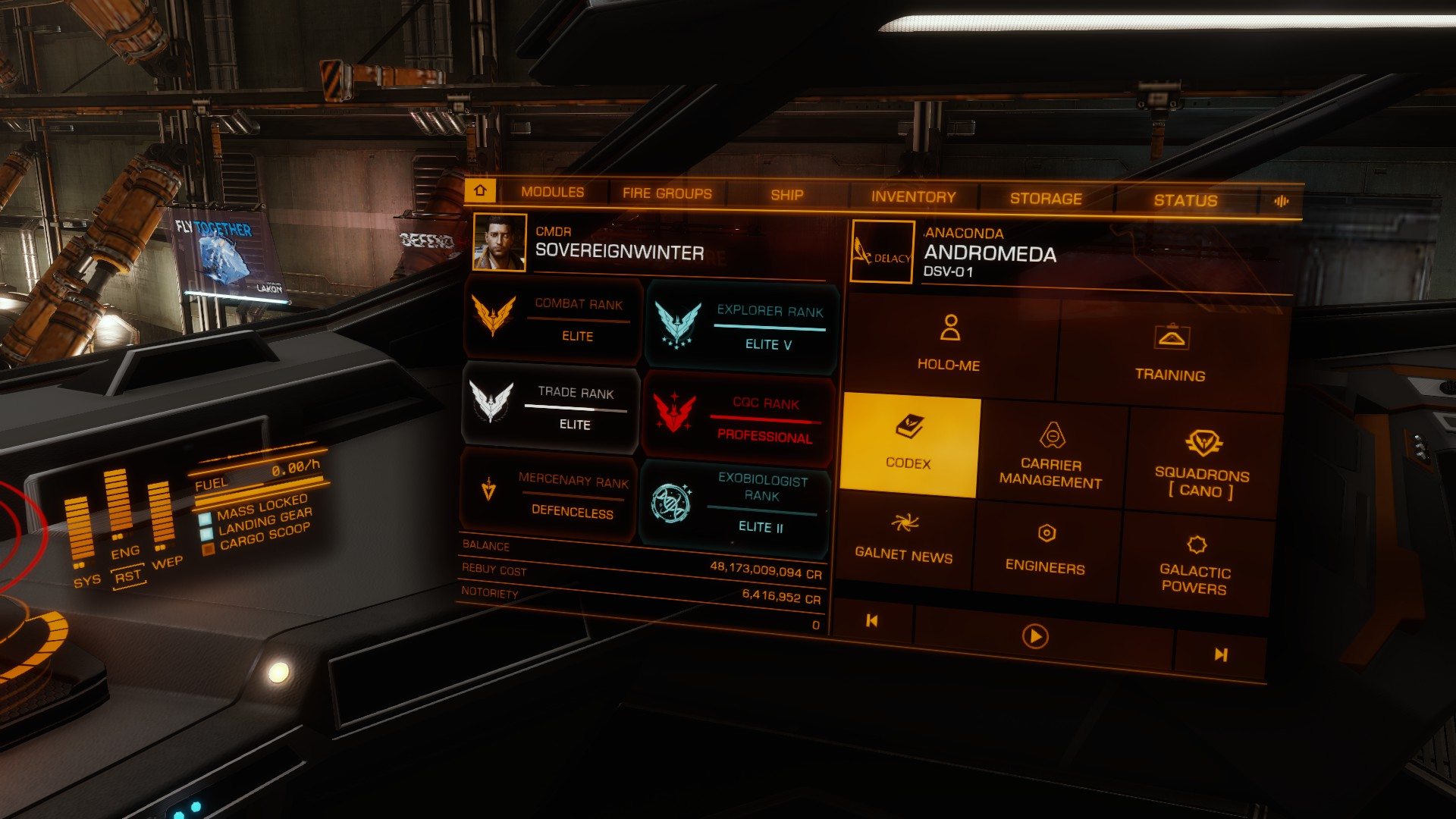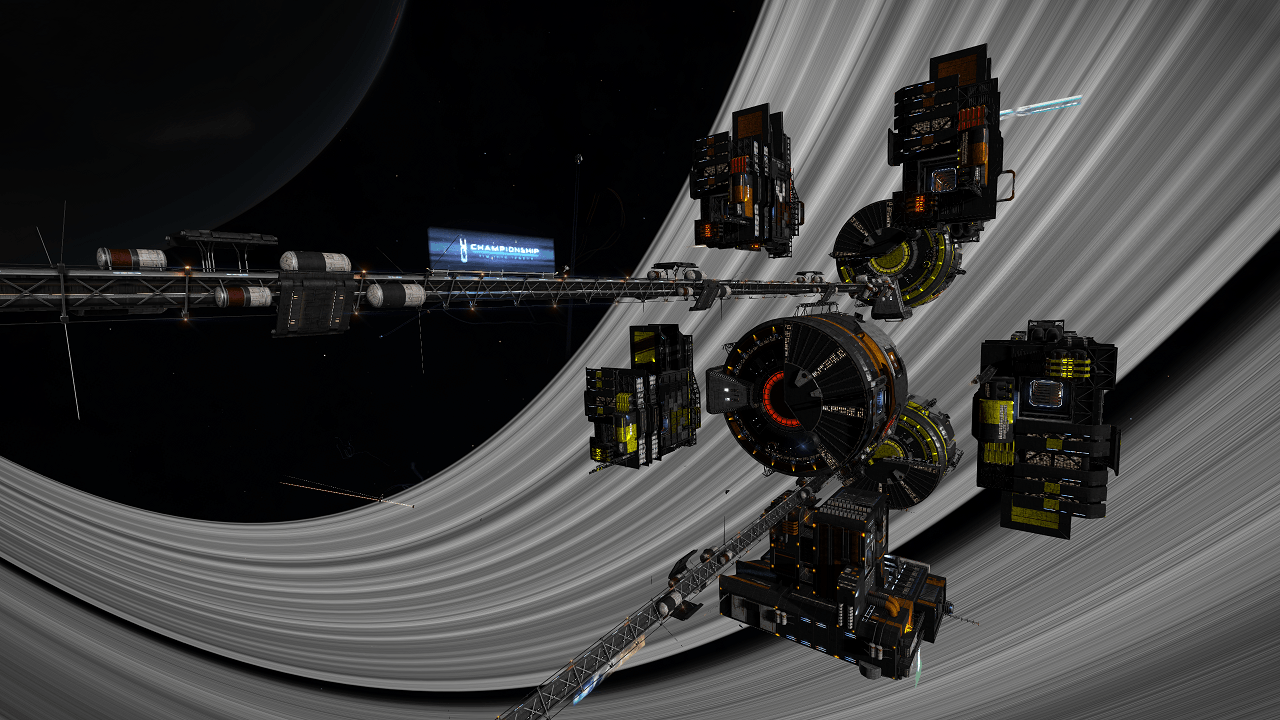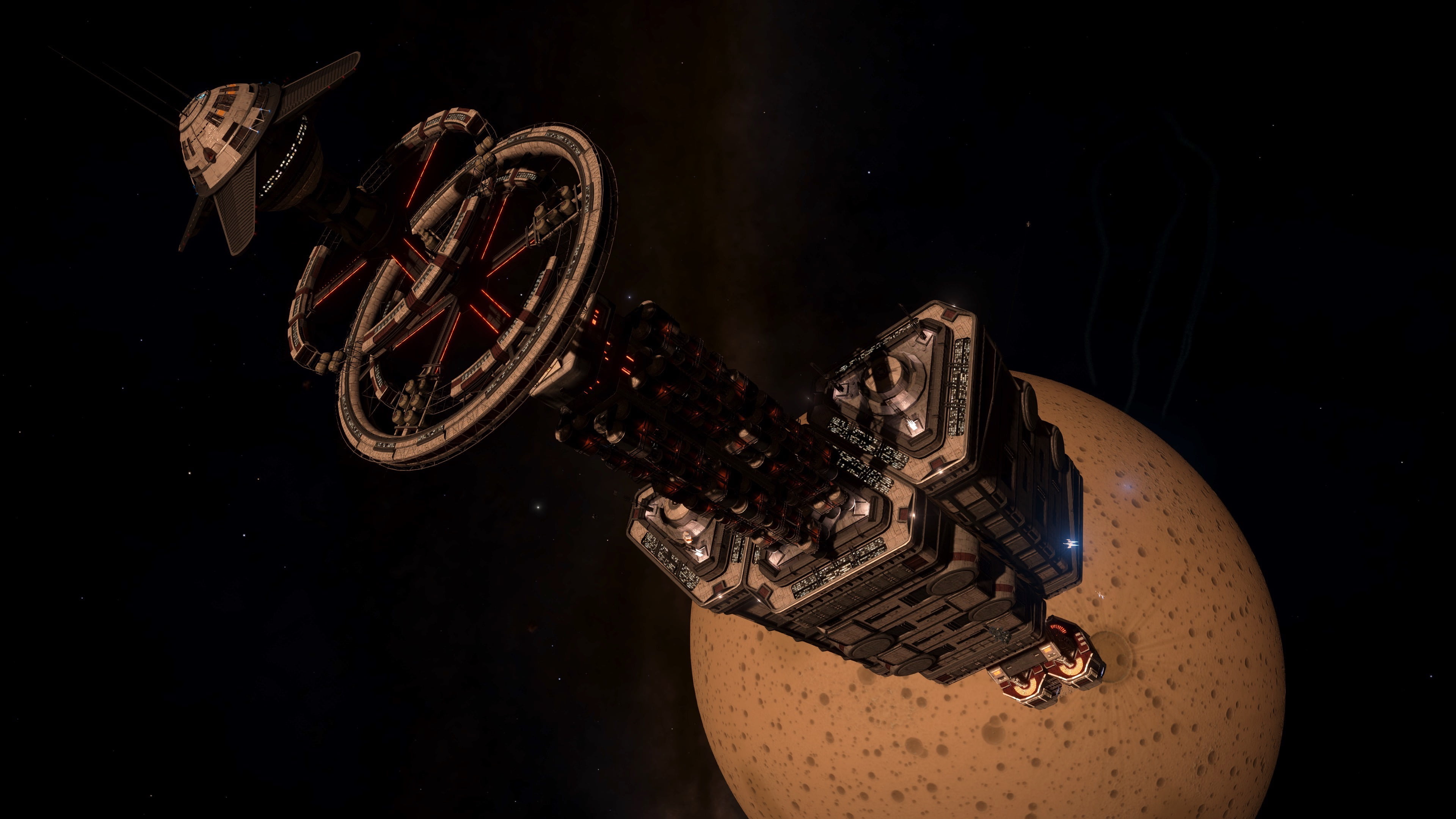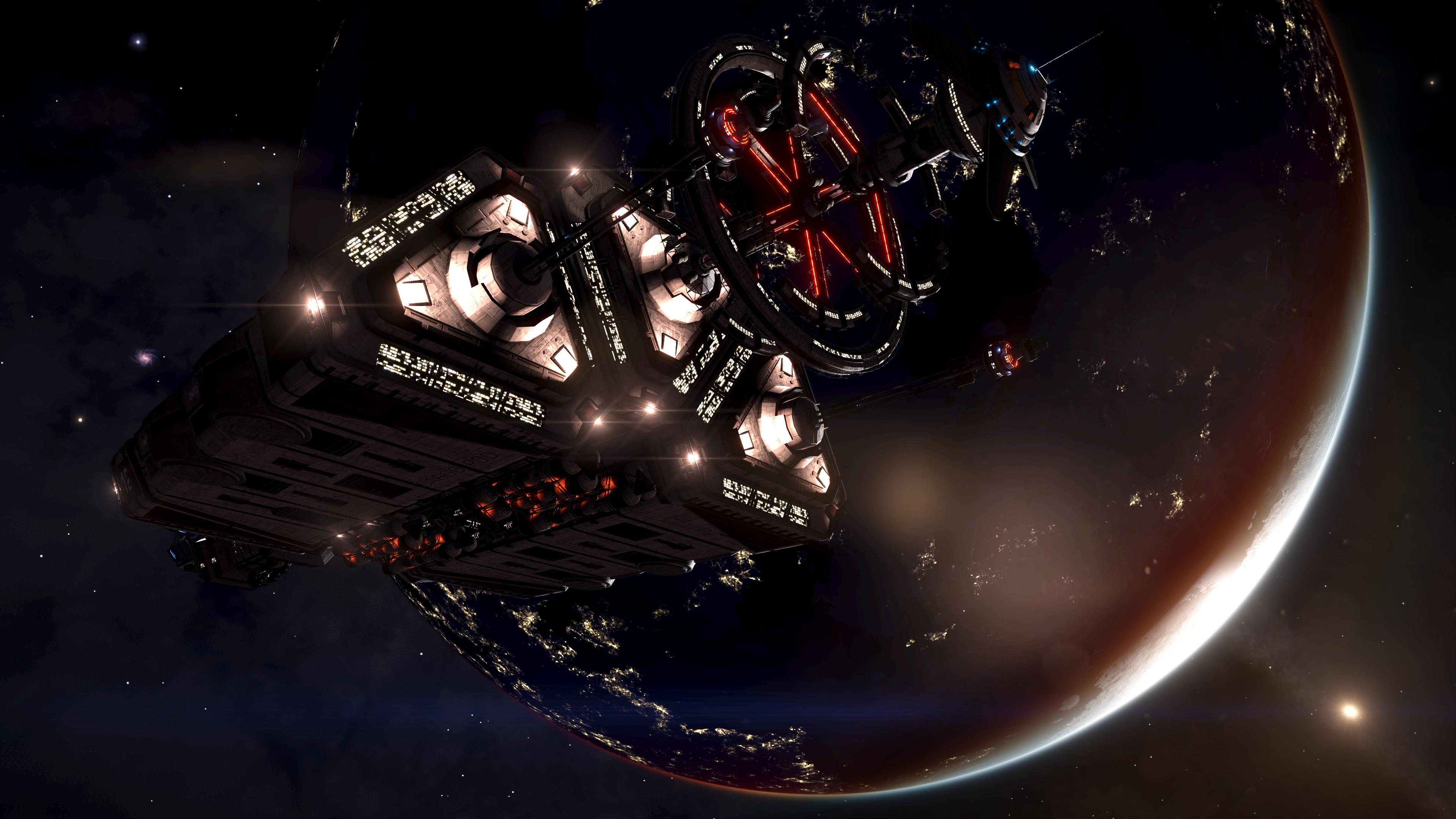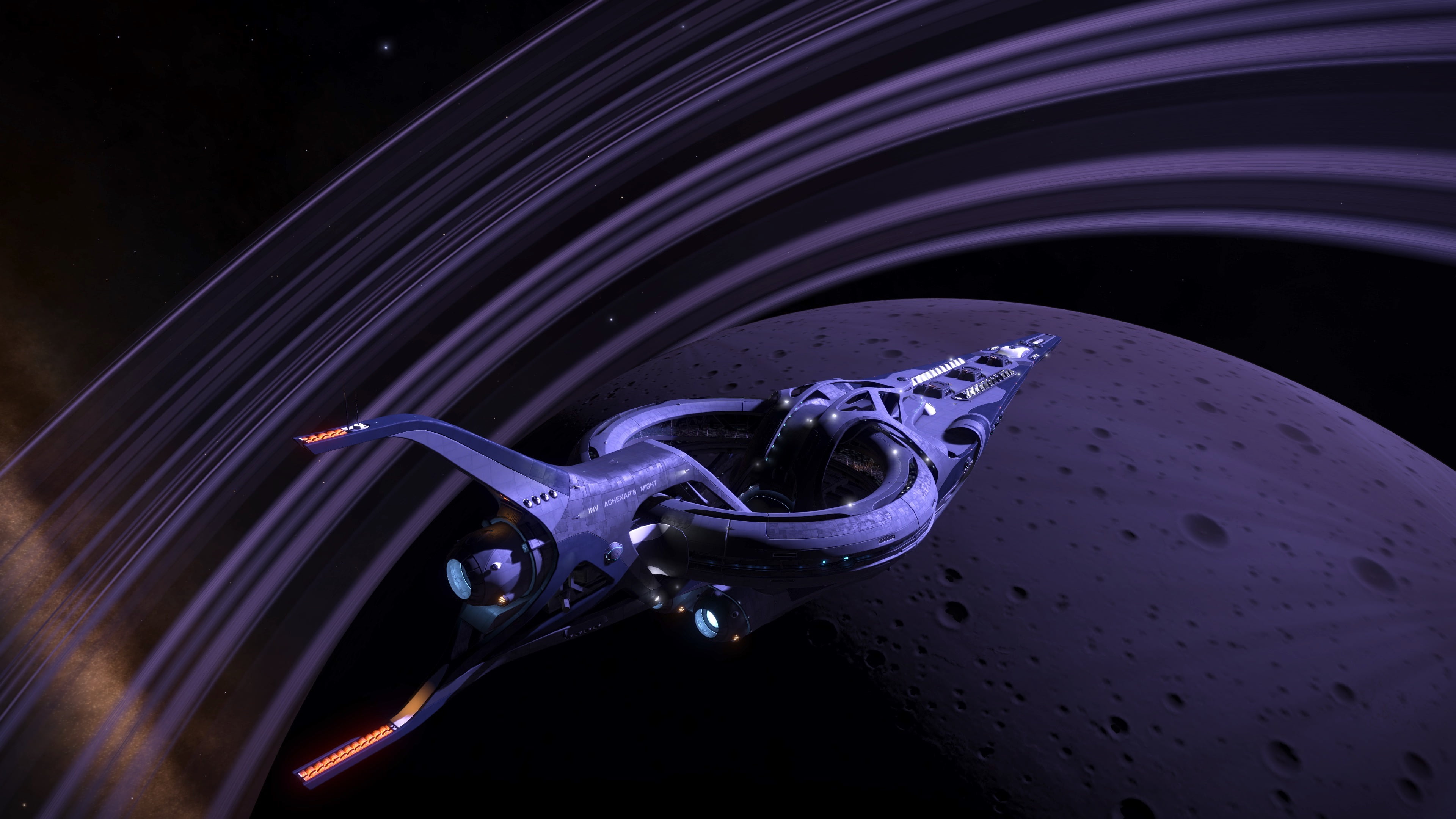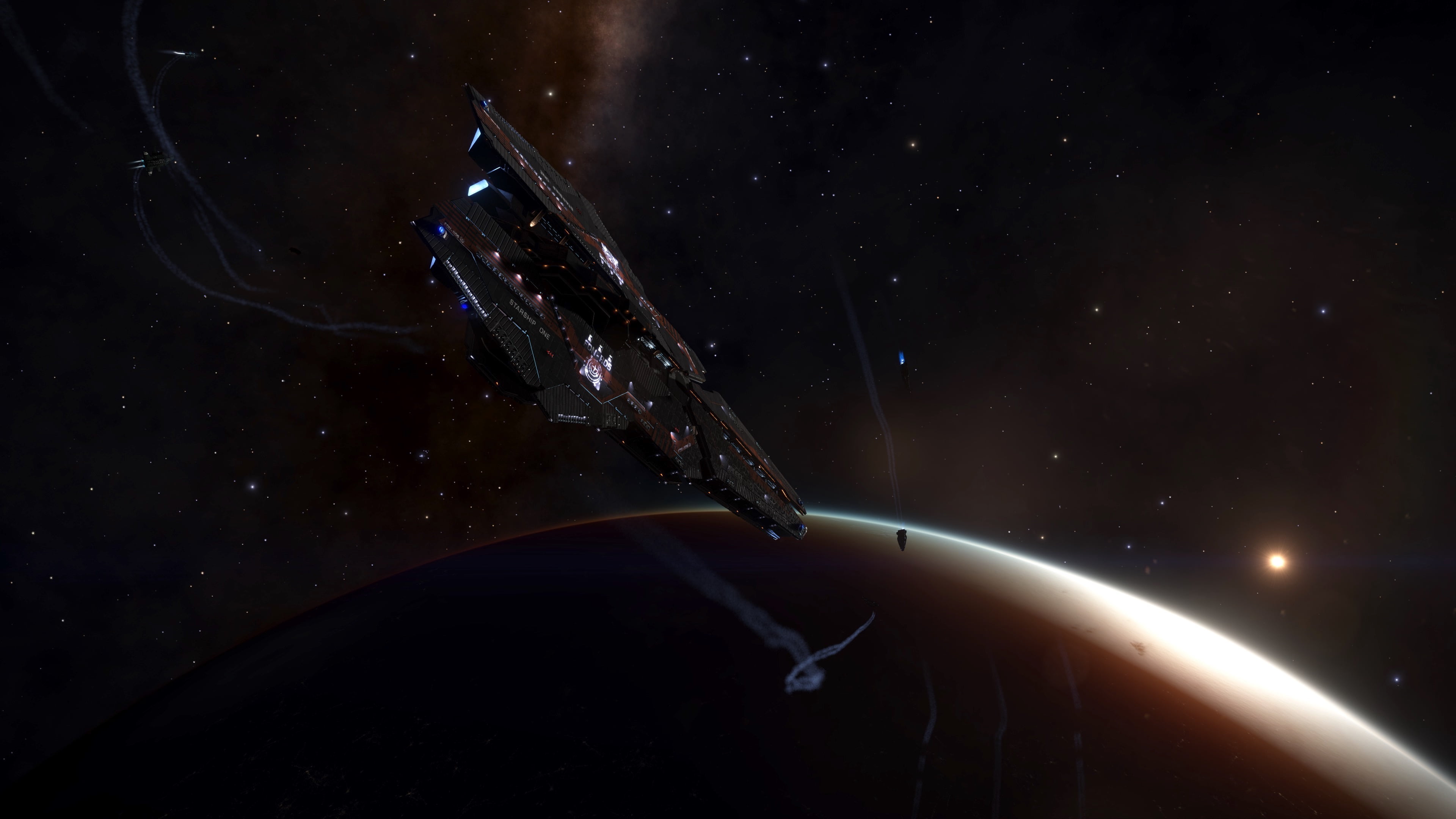Culture Summary
From a young age the Guardians were raised communally with shared values of co-operation and social responsibility. Laws were based not on individual rights but on the responsibility of the individual to the community, and each Guardian enforced and followed these laws. There was expectation for everyone to take part in the scientific, cultural and administrative tasks, and it seemed that they gained great satisfaction from these collaborative practices. They had a rich cultural life with evidence of art, interactive theatre, and music all forming part of their social duties. Architecture was inspired by geometry, and used to illustrate relations between the Guardians and the world around them. They felt a spiritual connection to the environment, and a collective responsibility to maintain it. These spiritual traditions eventually formed the basis of their religion, together with rejection of the development of neural implants and artificial intelligence.
Entries:
Culture 1/20
This is very interesting commander. This is a new data pattern. I have given it the designation beta-pattern data. I can already report that it contains some fascinating insights into the Guardians culture. The first is that religion formed a large part of their lives. Strangely this seems to have occurred late in their development, after various technological revolutions. The details are a bit vague in this data package. There must be others that hold more cultural details. Please continue the search.
Culture 2/20
Your hard work is paying off commander. This data holds more details about the Guardians culture, specifically spiritual matters. Almost from the dawn of their civilization they possessed a strong spiritual sense – one that reflected their close connection to the natural world. Even when they’d developed industrial-scale machinery, they maintained a balance with the world around them. Their ongoing love of hunting presumably played a significant part in this.
Culture 3/20
This data holds more details about the Guardians culture, specifically spiritual matters. This spiritual awareness sustained them through most of their history, but did not evolve into a formal religion. It was not until the development of machine intelligence, during the most rapid era of their development, that any sort of organized religion emerged. I speculate that this technological singularity alienated much of the population, who responded by rejecting this technology.
Culture 4/20
This data holds more details about the Guardians culture. The tipping point that gave rise to organized religion amongst the Guardians doesn’t appear to have been the creation of thinking machines, but other technological developments – in particular a kind of implant that interfaced with the brain. Up to this point, biological enhancement and repair had utilized only organic-based systems, so this sudden change frightened many.
Culture 5/20
This is very interesting, very interesting indeed. This data holds more details about the Guardians culture. There was an anti-technology movement that rejected not only specific developments, but also inventions such as virtual reality. The loose customs associated with their affinity for nature formed the basis for a new belief system. It evolved rapidly – almost as quickly as the technological advancements produced by the scientists and machine intelligences. It’s interesting to note the parallels with human-made sentient technology, and how its development threatened humanity during the golden age of technological advancement. The growth of this new religion divided the population, and conflict soon erupted.
Culture 6/20
This data holds some shocking revelations. it talks about the religion that emerged towards the end of the guardians civilization and I wont lie it has shocked me. While religion remains a feature of human society, unless you live in one of the more extreme theocracies, its generally a matter of personal faith rather than a generally accepted consequence of the human condition. I know some of my fellow researchers would disagree with me. but it is generally assumed that religious beliefs tends to reduce to potency as scientific understanding grows in the case of the guardians, the opposite holds true, it truly divided them.
Culture 7/20
This data does not paint a bright picture of the Guardians culture at the point it was recorded. As I examined the data in this beta pattern and crossed references from other data I have received, I have learned that the truth wasn’t quite so clear cut. The information I’ve extracted regarding their legal system indicates a stable and mature society. Given the physical similarities between us and them, I’m amazed at the cultural and societal differences and the speed at which they rose to become part of their lives.
Culture 8/20
This data contains cultural data, specifically regarding the legal system of the Guardians. In contrast to many of our legal systems, the fundamental laws do not concern individual rights, but instead focus on defining the individual’s responsibilities to society. I’m sure this is another reflection of their pack mentality, where the requirements of the group supersede those of a single person. Naturally, it isn’t as simple as that in practice – for example, individuals were expected to come to another’s aid if necessary.
Culture 9/20
This data contains cultural data, specifically regarding the legal system of the Guardians. An individuals responsibility extended past simply obeying the law to include elements of law enforcement. Society was self regulated, with everyone required to ensure laws were obeyed. These values were instilled in the young as part of their education in the communal crèches.
Culture 10/20
This data contains cultural data, specifically further details regarding social responsibility. As well as being regulated, there was still hierarchical form of administration within the legal system. These were defined by areas of responsibility, but as with all the Guardians social structures, everyone was expected to participate, meaning that individuals were required to fill certain legislative roles as part of their everyday life. Some of the concepts aren’t completely clear, but I believe individuals were nominated and couldn’t hold office for more than a single term.
Culture 11/20
An excellent discovery commander. I was wondering when we would find this type of cultural data. I had begun to fear it might not exist. You can tell a lot about a people from their art. Humanity has demonstrated great creativity in artistic expression throughout history, and I’m keen to compare our art with the Guardians. Fortunately I’ve been able to tease some details from the beta-pattern data abstracts in this data package. We already knew they were capable of fabulous architecture, but these records show that buildings, statues, monoliths and even city layouts were a common outlet for aesthetic expression.
Culture 12/20
This is truly fascinating data commander, as an engineer myself I have to admit I’m highly curious about the Guardians technology. It seems that the guardians had a particular fascination with geometric shapes, which they used to illustrate connections between themselves and the world around them. This predilection manifested itself in their technology as well – specifically their monolith network. With this data and the help of the galactic community we’ve partially mapped the monolith network, which formed the backbone of their communications technology, and discovered that they too are arranged in geometric patterns. Whilst this does not give us full access to the network, I believe it is the first step to unlocking the entire system and maybe more.
Culture 13/20
This data contains more details on the Guardians culture, specifically art. Many of the records I’ve now extracted include the data you’ve just sent through, show that most of the Guardians art had a religious basis. It seems that their shift to a religious society affected all aspects of their lives. I have found older records that indicate other art forms did exist, with realistic and abstract techniques evident. I hoping that some of the data we’ve yet to decode will contain images of these art works.
Culture 14/20
This data contains more details on the Guardian’s culture, specifically art and how it fitted into social responsibility. It appears each individual Guardian had a cultural commitment to create and share works of art. While it’s clear that the quality varied between individuals, all works were considered worthy by virtue of their efforts alone. This package does in fact contain many images of their works. It is truly interesting, such a pity we might never know the meaning behind many of these pieces.
Culture 15/20
A human observer might find the Guardians visual art severe and lacking in emotion, but the same could not be said of their music. They didn’t use musical instruments, so strictly speaking it’s singing, although I think they might have used their bodies for rhythm and percussion. I’ve extracted audio from the data you have collected and have listened to, for want of a better term, their “songs”. The range of their voices is something to be admired. And it’s so rich with emotion – many pieces are so haunting, it breaks the heart to listen them.
Culture 16/20
This is very interesting data commander.The data describes what must have been a kind of counter culture. Dancing was considered taboo, especially when combined with language gestures, but there is evidence that gesture dances were popular with adolescents, possibly as a form of rebellion. I’m not sure why such activity was prohibited, but it might have something to do with potentially conflicting information – something they took great pains to avoid.
Culture 17/20
This data contains details of other past times and cultural events. As a consequence of their extensive industrial automation, the Guardians had a lot more time for social pursuits than we do. It’s another interesting contrast – we have a similar capability, but our fear of surrendering control to machine intelligence means we remain wedded to idiosyncratic working practices. We could learn so much from this species – I only hope that in some small measure my research guides us towards such enlightenment.
Culture 18/20
This data contains details of other past times and cultural events. The Guardians didn’t waste the freedom their technological advancements offered: leisure activities were encouraged, even expected, as part of normal social intercourse. Time was devoted to social responsibilities and furthering personal abilities. Scientific research is a good example of this. Although they stagnated in their later period, throughout their early history the Guardians had a societal obligation to seek out and share knowledge. Research was often conducted in vast collaborative programmes, which were also seen as vital learning experiences.
Culture 19/20
This data contains more cultural information. Their attitude towards their varied endeavours sets them apart from humans. Their social obligations were not seen as chores – in fact they enjoyed participating in these roles. Because all were obligated to take part, it meant social responsibilities were often a short-term diversion, as well as allowing individuals to accrue a variety of experience. I also think there was a biochemical component that enhanced their enjoyment of such tasks, but I haven’t been able to prove that supposition yet.
Culture 20/20
This data contains more details about entertainment as a cultural activity. I believe this data show that the Guardians enjoyed what we would consider traditional entertainment. The performance of classical stories and historical epics seem to have been very popular. Their equivalent to theatre was more participatory than ours, with less of a distinction between audience and performer – so much so that the term ‘enactment’ might be more accurate than ‘theatre’. It’s just another example of this species’ incredible social dynamics.
